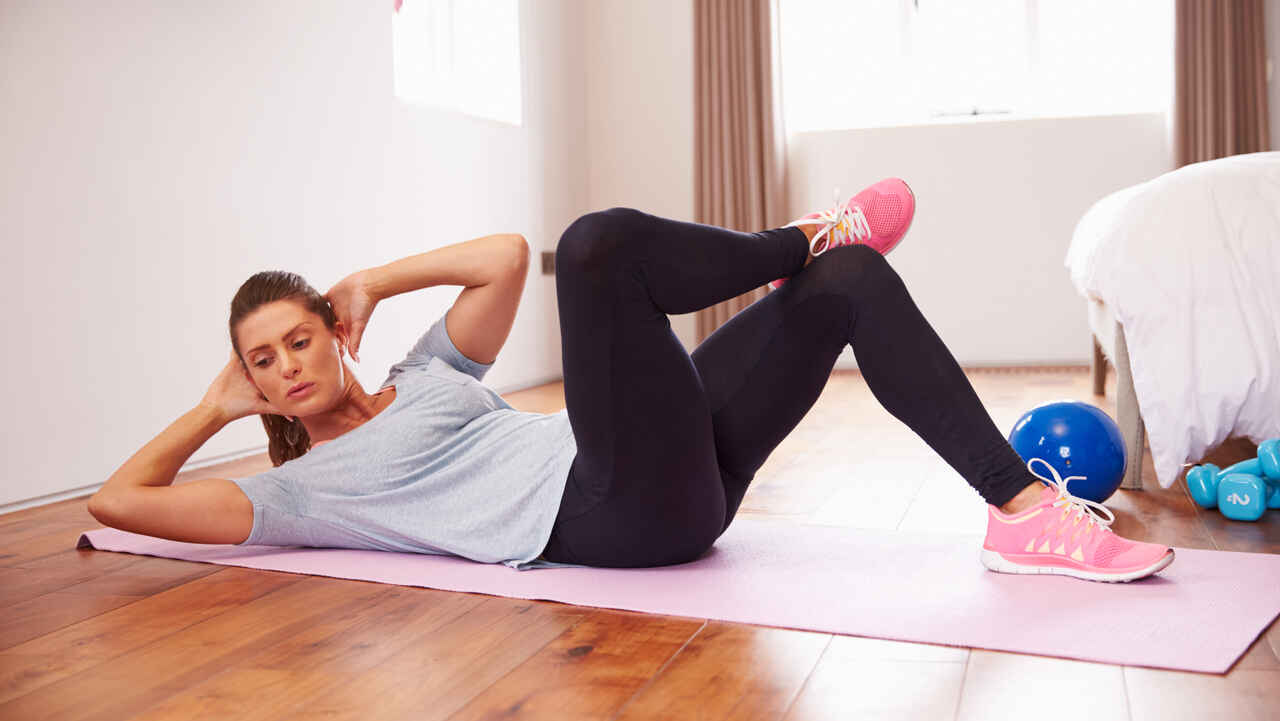
These two exercises both strengthen core muscles, but here’s how they differ.
Gym closures, changes in daily schedules and other factors affected by the pandemic have resulted in many people not exercising at a gym or with a personal trainer. Instead, they are going it alone at home, without any formal workout instruction. Not only is it harder to stay motivated when you don’t have an instructor to follow but you may also have questions about the types of exercises to do if you want to achieve a specific goal.
One goal you may have is to build and strengthen your core. Having strong core muscles is important for supporting your posture and balance. A strong core may also help reduce back pain. And there are those who strive for “six-pack” abs just because they like the look of them.
If you’re wondering which exercise is best if your goal is building abdominal and core strength – sit-ups or planks – read on for the answers to some common questions about these two popular exercises.
What are sit-ups?
Sit-ups are a classic way to build the rectus abdominis, or the pair of muscles that run vertically on the front side of the abdomen. Referred to as a six-pack when these muscles can visibly be seen, having a strong rectus abdominis is coveted by many workout enthusiasts.
To perform a sit-up, begin by lying on your back. With legs bent and feet placed firmly on the ground, curl your upper body toward your knees, exhaling as you lift. Keep your hands positioned behind your head or crossed at your chest so you don’t use the momentum of your arms to lift your upper torso. Slowly return to your starting position and repeat the exercise numerous times (depending on your fitness level).
What are planks?
Unlike sit-ups, planks are not a repetitive exercise. Instead, they are an isometric exercise in which you maintain a position similar to the start of a push-up for a specified period of time. Holding this position not only engages your rectus abdominis, but also your transverse abdominis, the layer of muscle deep within your abdominals. Additionally, your side muscles (obliques), hips and buttocks become engaged. This means your entire core is strengthened as you do the exercise.
Is one exercise better than another for your core?
Generally speaking, any exercise is better than no exercise at all. But you may be wondering if one exercise is better for your core than another. The answer is not exactly straight-forward.
If you are aiming for picture-perfect abs, then classic sit-ups are a great choice for you. But while sit-ups may help you achieve six-pack abs, they won’t do much in terms of strengthening the other muscles in your core. Sit-ups definitely have their place in a core workout. But if you prefer sit-ups over planks, plan to strengthen other important core muscles by doing complimentary exercises.
If your goal is to have a strong overall core, then planks may be your best bet. Planks engage all of your core muscles during the isometric hold simply by utilizing your own body weight, so you can strengthen your core over time with just this one exercise. As an added bonus, planks can also help keep non-core muscles, like those found in the arms, chest and upper back, engaged as well.
No matter which route you choose on your path to a stronger core, consult with your doctor before you start any exercise regimen to ensure your health and safety.
Copyright 2020 © Baldwin Publishing, Inc. All rights reserved.
Health eCooking® is a registered trademark of Baldwin Publishing, Inc. Cook eKitchen™ is a designated trademark of Baldwin Publishing, Inc. Any duplication or distribution of the information contained herein without the express approval of Baldwin Publishing, Inc. is strictly prohibited.
Date Last Reviewed: October 14, 2020
Editorial Review: Andrea Cohen, Editorial Director, Baldwin Publishing, Inc. Contact Editor
Medical Review: Andrew P. Overman, DPT, MS, COMT, CSCS
Learn more about Baldwin Publishing Inc. editorial policy, privacy policy, ADA compliance and sponsorship policy.
No information provided by Baldwin Publishing, Inc. in any article is a substitute for medical advice or treatment for any medical condition. Baldwin Publishing, Inc. strongly suggests that you use this information in consultation with your doctor or other health professional. Use or viewing of any Baldwin Publishing, Inc. article signifies your understanding and agreement to the disclaimer and acceptance of these terms of use.